Understanding and Coping with Post-Traumatic Stress Disorder (PTSD) Introduction
Post-Traumatic Stress Disorder (PTSD) is a mental health condition that can affect individuals who have experienced or witnessed a traumatic event. It can have a significant impact on a person’s daily life, relationships, and overall well-being. In this article, we will explore what PTSD is, its symptoms, causes, and how to identify if you or someone you know may be experiencing it. We will also discuss coping strategies, support options, the importance of seeking help, and the healing process, including the role of counselling in PTSD recovery.
What is Post-Traumatic Stress Disorder (PTSD)?
PTSD is a psychological condition that develops after experiencing or witnessing a traumatic event. It can occur in response to various types of traumas, such as natural disasters, accidents, physical or sexual assault, combat, or other life-threatening events. Individuals with PTSD often re-experience the trauma through intrusive memories, nightmares, or flashbacks. They may also experience emotional and physical distress when reminded of the event.
Symptoms of PTSD:
Common symptoms of PTSD can be categorized into four main clusters: intrusive thoughts and memories, avoidance behaviours, negative changes in thoughts and mood, and changes in arousal and reactivity. These symptoms may vary in intensity and duration. Some individuals may experience symptoms shortly after the event, while others may develop them months or even years later.
Causes of PTSD:
PTSD can be caused by various traumatic events. The intensity and duration of the trauma, personal vulnerability, and the presence of support systems can all influence the likelihood of developing PTSD. Other factors, such as a history of mental health conditions or previous exposure to trauma, can also contribute to the development of PTSD.
Recognizing if You or Someone You Know is Traumatized:
Identifying if you or someone you know is experiencing trauma can be challenging. Common signs include persistent feelings of fear or anxiety, avoidance of reminders associated with the traumatic event, changes in mood or behaviour, difficulty concentrating, and sleep disturbances. It is important to seek professional help if these symptoms persist and significantly impact daily functioning.
Coping with PTSD:
Coping with PTSD requires a multifaceted approach that addresses both the emotional and physical aspects of the condition. Healthy coping mechanisms include seeking support from loved ones, engaging in relaxation techniques like deep breathing or meditation, practicing self-care, and participating in activities that bring joy and fulfilment. Unhealthy coping mechanisms, such as substance abuse or social withdrawal, should be avoided as they can exacerbate symptoms.
Support for People with PTSD:
Support from friends, family, and mental health professionals is crucial for individuals with PTSD. Loved ones can offer a listening ear, understanding, and patience. Mental health professionals, including therapists and counsellors, can provide specialised support through various therapeutic approaches like cognitive-behavioural therapy (CBT) or eye movement desensitisation and reprocessing (EMDR).
Seeking Help for PTSD:
Knowing when to seek professional help is essential. If PTSD symptoms persist for more than a month, significantly impact daily functioning, or cause distress, it is crucial to consult a mental health professional. They can provide an accurate diagnosis, develop an individualized treatment plan, and offer support throughout the healing journey.
Healing from PTSD and the Role of Counselling:
Recovering from PTSD is a unique and personal journey. Counselling plays a vital role in the healing process. Therapists can provide a safe and supportive environment for individuals to explore and process their traumatic experiences. Here are some key aspects of counselling in the context of healing from PTSD:
- Trauma-Informed Approach: Counsellors who specialize in trauma are trained to understand the impact of trauma on individuals’ mental health and well-being. They approach therapy with sensitivity, empathy, and an understanding of the complexities of PTSD.
- Establishing Safety and Trust: One of the primary goals of counselling for PTSD is to create a safe and trusting therapeutic relationship. This allows individuals to feel comfortable sharing their experiences, thoughts, and emotions without fear of judgment or traumatization.
- Psychoeducation: Counsellors provide education about PTSD, its symptoms, and its effects on individuals’ lives. Understanding the nature of PTSD helps individuals gain insight into their experiences and reduces feelings of shame or self-blame.
- Processing Traumatic Memories: Counselling offers a space for individuals to process and make sense of their traumatic memories. Therapists use evidence-based techniques such as cognitive processing therapy (CPT) or eye movement desensitization and reprocessing (EMDR) to help individuals reframe their traumatic experiences and reduce their emotional impact.
- Addressing Symptoms: PTSD can lead to various symptoms such as flashbacks, nightmares, hypervigilance, and avoidance behaviour. Counsellors work with individuals to develop coping strategies and skills to manage these symptoms effectively. This may involve techniques like grounding exercises, relaxation techniques, and mindfulness.
- Emotional Regulation: Many individuals with PTSD struggle with intense emotions, including anger, guilt, fear, and sadness. Counselling helps individuals develop healthier ways of managing and regulating their emotions. This may involve exploring triggers, challenging negative beliefs, and learning adaptive coping strategies.
- Building Resilience and Self-Empowerment: Counselling focuses on empowering individuals to regain control over their lives. Therapists help individuals identify their strengths, develop resilience, and cultivate a sense of self-worth and empowerment. This can involve setting achievable goals, improving self-care practices, and fostering positive relationships.
- Support and Validation: One of the essential aspects of counselling is providing support and validation. Counsellors offer a non-judgmental space where individuals can share their experiences and emotions openly. Feeling heard, understood, and validated can be incredibly healing for individuals with PTSD.
It’s important to note that counselling for PTSD is not a one-size-fits-all approach. Different individuals may respond differently to various therapeutic modalities. Therefore, it’s essential for individuals to work collaboratively with their therapists to find an approach that suits their needs and preferences. Additionally, in some cases, counselling may be complemented by other treatments such as medication, group therapy, or holistic approaches like mindfulness or yoga.
